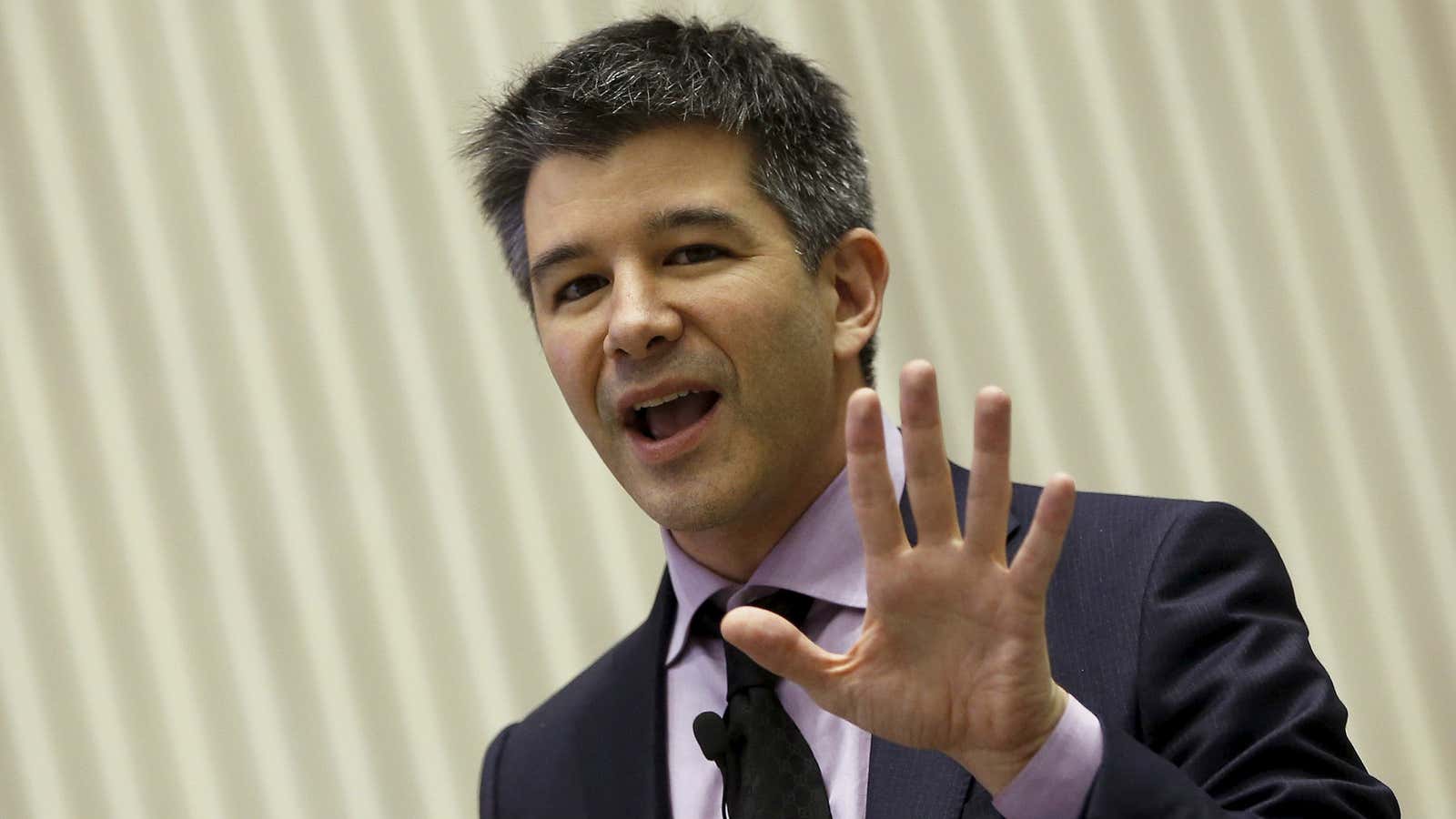It’s the end of an era for Uber.
Travis Kalanick, co-founder and CEO of the embattled ride-hailing company, has resigned from his position as CEO, the New York Times reports (paywall), after five major investors stepped up pressure on him to leave on Tuesday (June 20).
“I love Uber more than anything in the world and at this difficult moment in my personal life I have accepted the investors request to step aside so that Uber can go back to building rather than be distracted with another fight,” said Kalanick in a statement, the Times reported.
Kalanick will be remembered for his aggressiveness, which helped make the company the world’s most popular ride-hailing company, but also led to his downfall.
After founding Uber in 2009 with Garrett Camp, Kalanick took a ruthless approach to expansion and labor relations, setting the stakes for the fledgling ride-hailing industry and also the so-called sharing economy at large. When expanding into new cities Uber often occupied a legal grey area, bypassing transport permissions processes that it argued applied to transport companies, but not a technology company like itself. Along the way, the company increasingly drew the ire of regulators and taxi unions globally.
Kalanick also placed extremely strict limitations on Uber drivers, banning them for low ratings or not accepting enough rides—all while refusing to legally classify them as employees, which would make them eligible for benefits, rather than independent contractors (courts in some jurisdictions disagreed). And he had no qualms about using whatever means necessary to sabotage his competitors.
What hath Kalanick wrought? Uber is valued at approximately $68 billion, and remains the global leader in a cutthroat industry filled with corpses.
But while Kalanick’s recklessness paid off in market share, it caught up with him internally at the company. Kalanick and his close cohort at Uber had long been criticized for promoting a toxic company culture—evidenced by chauvinistic comments, attacks on journalists, and reports about college fraternity-style parties. Things reached a breaking point in 2017, when former employee Susan Fowler wrote a lengthy blog post alleging that her supervisor at Uber had sexually harrassed her.
Her story, along with other incidents, prompted Uber to appoint former US attorney general Eric Holder to lead an independent review of its culture. Since then, several key executives and board members have left the company, leaving a leadership void at the top. Kalanick himself stated last week he would take a leave of absence from the company.
“For Uber 2.0 to succeed there is nothing more important than dedicating my time to building out the leadership team. But if we are going to work on Uber 2.0, I also need to work on Travis 2.0 to become the leader that this company needs and that you deserve,” he wrote at the time.
Signs of Uber 2.0 are already emerging. On Tuesday the company announced it would introduce a feature that lets riders tip drivers—something Kalanick had long shunned, but drivers (and even some passengers) had clamored for. As for the leadership void, contenders to replace Travis are already emerging. Ariana Huffington has reportedly been a driving force in recruiting new executives and board members to replace those that left. Meanwhile, hours before the New York Times reported Kalanick’s resignation, Uber co-founder Garrett Camp—who has not actively run the company day-to-day with Kalanick—published a letter on Medium calling the company to “hold ourselves to a higher standard going forward.”
